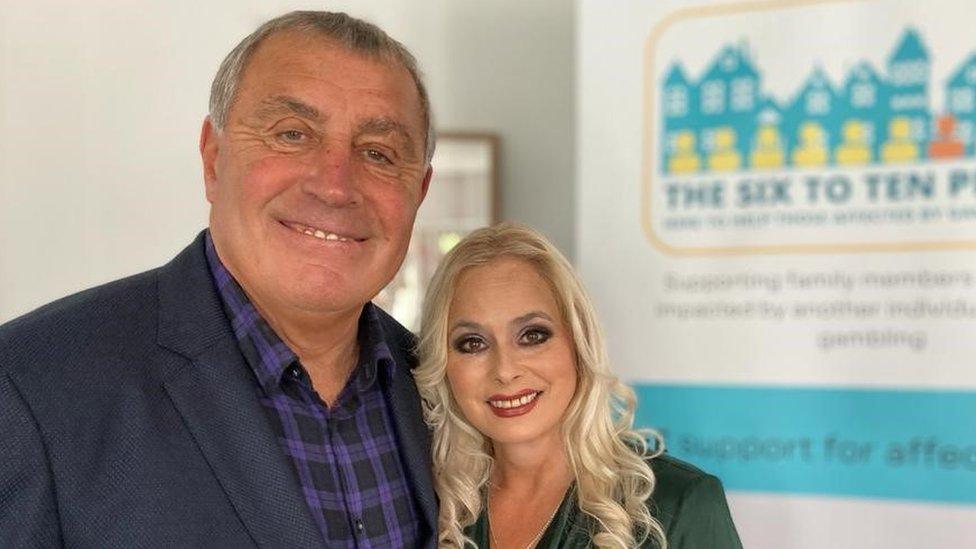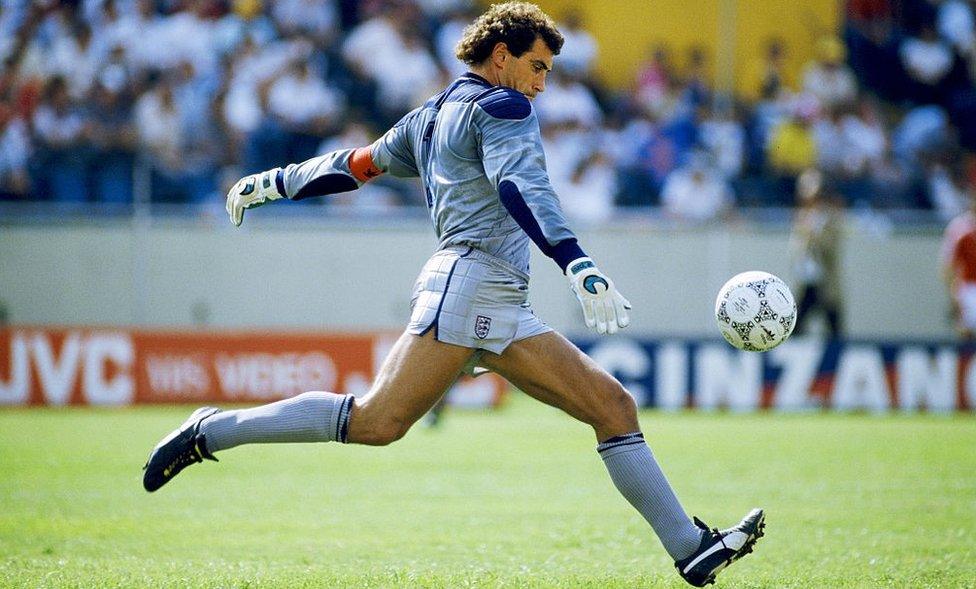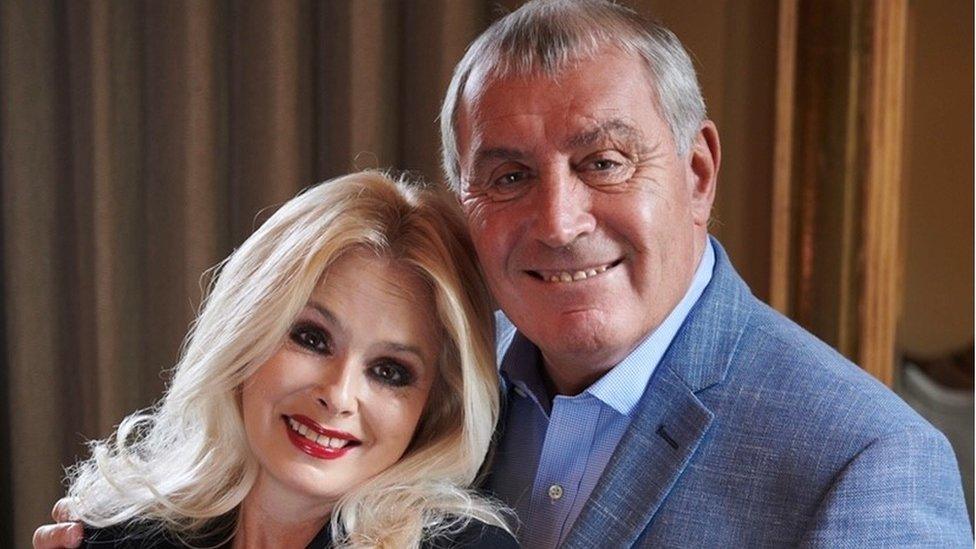Gambling disorder: Shilton wife's fears for World Cup gamblers
- Published

Steph Shilton works with a charity which helps people overcome their addiction issues
The wife of ex-England footballer and former gambler Peter Shilton said she fears people are being drawn into problem-gambling by the World Cup.
Steph Shilton, an addiction counsellor, said she expected a "surge" of calls due to new or relapsed gambling in the lead up to Christmas.
Experts have warned the cost-of-living crisis is creating a "perfect storm".
"Many won't realise they have a problem until further down the line," said Mrs Shilton, who lives in Essex.
"They are only just getting pulled into it.
"It's really appealing to a lot of youngsters, and there will be a lot of football fans who come into gambling because of the World Cup."
Shilton, who is England's most-capped player, was a gambling addict for 45 years until his wife helped him quit seven years ago.

England's exciting World Cup run may have drawn people into gambling, Steph Shilton said
The couple campaign on the issue and Mrs Shilton, an ambassador and counsellor for ARA (Addiction Recovery Agency), external, has been contacted by addicts and hundreds of concerned partners and parents.
"I think in the new year there's going to be a big surge - the floodgates will open," she said.
"We've got the financial crisis going on as well, some people are less aware of their spending at Christmas time, then the bills start coming in in January.
"I really do worry about it."

Peter Shilton, now aged 73, had a playing career spanning three decades
She advises loved ones to look out for signs of gambling addiction, including constant phone use during a sporting event, and a betting win being more important than the final score.
"Partners tend to worry most about finances, and since the World Cup I've heard from a lot of parents worried about their child's gambling, and the affect on their mental health.
"It's harder for parents to keep track of what their children are doing - will they be watching the game with their friends, will there be peer pressure?
"Gambling is normalised in football, the adverts are constant and vulnerable people will end up getting involved.
"If you go into a pub with a game on, everyone watching is on their phones, putting their bets on.
"It breaks Peter's heart he says 'where has the love of the game gone?'"
'Back on track'
GamCare, which operates the National Gambling Helpline, said from figures it had so far there was a slight uptick in calls during the World Cup.
It said it was already able to see the impact of the cost of living crisis, with reports of people using betting shops as warm banks, leading to additional habits around gambling, and people on Universal Credit using gambling to cover rising bills.
"With an accelerating cost-of-living crisis, the World Cup, Christmas and a long period until the next paycheque, we know the current climate poses significant challenges for those impacted by gambling," its chief executive Anna Hemming said.
"Post-Christmas, in a time where we regularly see high demand for our services, we anticipate more people will come forward to seek support in a hard time of the year.
"We know that January is a time where people make resolutions for the year ahead, such as stopping gambling.
"We want people to know we're here to support them in their journey and that we can help them get back on track."

Where to get help
The NHS addiction support website, external outlines what help is available.
GamCare operates the National Gambling Helpline, external, providing information, advice and support for anyone affected by gambling problems - advisers are available 24 hours a day on Freephone 0808 8020 133 or via web chat.
Gamblers Anonymous provides a list of support meetings for problem gamblers in Scotland here, external and in England, Wales and Northern Ireland here, external.
Further sources of support can be found on the BBC Action Line page.

Find BBC News: East of England on Facebook, external, Instagram, external and Twitter, external. If you have a story suggestion email eastofenglandnews@bbc.co.uk
Related topics
- Published7 December 2022

- Published7 August 2022

- Published9 June 2022
